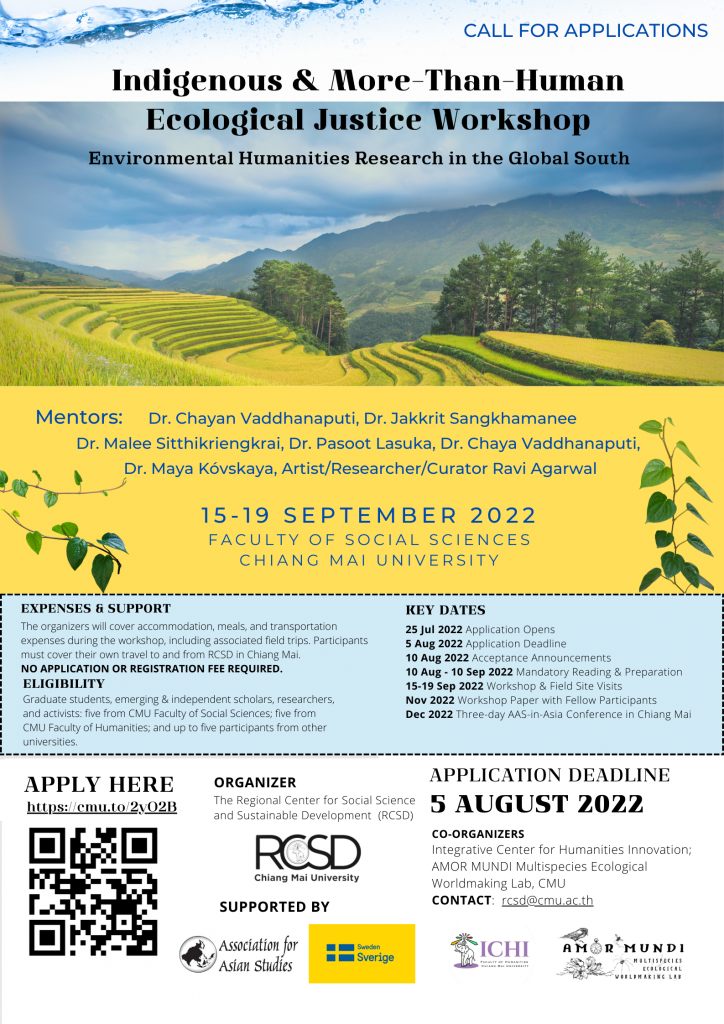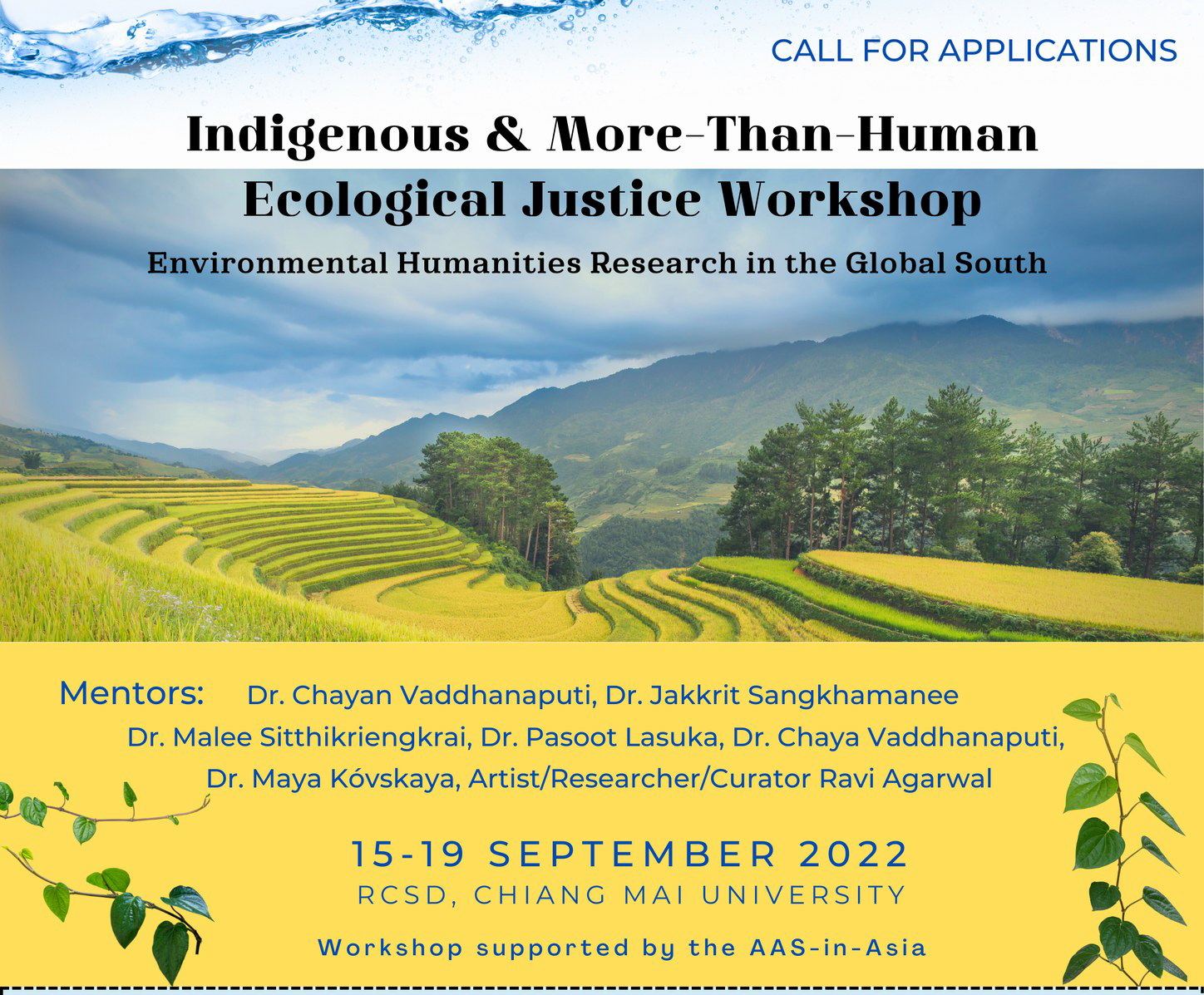This site-specific five-day workshop will introduce emerging scholars in the Global South to cutting edge, transformative and transdisciplinary concepts and research methods in environmental humanities and social science research. Struggles for justice under Anthropocene conditions in the Global South will be contextualized in relation to the “feral effects” of dams and hydrological diversion infrastructure projects on indigenous, marginalized and more-than-human communities, and their entangled socio-ecological lives and livelihoods, along the rivers, and areas subject to development-driven deforestation and human disturbance.

Application is open to 15 graduate students and/or emerging scholars: five from the Chiang Mai University Faculty of Social Sciences; five from CMU’s Faculty of Humanities, and up to five participants from other universities in Thailand. Social activists and independent researchers are also invited to apply. Only those who can commit to attending the five-day workshop in September, one-day writing workshop in November and the AAS-in-Asia conference in December will be considered.
The organizers will cover accommodation, meals, and transportation expenses during the workshop, including associated field trips, between the 15th-19th of September, 2022. Participants must cover their own travel to and from Chiang Mai. Interested applicants, please submit your application and required documents online here. For complete details of the workshop schedule, rationale, dates and list of research mentors please follow this link.
This workshop is organized by the Regional Center for Social Sciences and Sustainable Development (RCSD), Faculty of Social Sciences, Chiang Mai University in collaboration with AMOR MUNDI Multispecies Ecological Worldmaking Lab and the Integrative Center for Humanities Innovation, Chiang Mai University with support from the Association for Asian Studies in Asia (AAS-in-Asia).
Deadline for application: 5 August 2022
The workshop will introduce methods and concepts from “Multispecies Ethnography” and “Thai Baan.” Multispecies Ethnography offers modes of immersion for cultivating an attentiveness to the shared worlds that humans asymmetrically co-make with heterogeneous forms of more-than-human agency. The “Thai Baan” approach prioritizes engaging disproportionately affected, often marginalized and/or indigenous communities in order to align scholarship with counter-hegemonic knowledge-making towards the remediation of urgent socio-ecological crises and enactment of solidarity and resistance.
Guided by scholarly and artistic research mentors from the social sciences and humanities, participants—including graduate students, emerging scholars, or scholars new to these approaches—will learn about a variety of frameworks, key concepts, and research methods in a two-day intensive seminar focused on discussing required readings and grappling with the new ideas. Then participants will visit one of two sites and use this toolkit to practice ethnographic observation of struggles for justice, including for the marginalized, indigenous, and more-than human beings and entities. After two-days of intensive field visits, participants will spend a day workshopping ideas for their papers and producing an abstract to share with the group. That abstract will draw on some of the theoretical and methodological tools from the workshop and become the foundation for a paper to be presented at the American Association for Asian Studies in Asia (AAS-in-Asia) Conference in early December, hosted by RCSD at Chiang Mai University and in the field.

